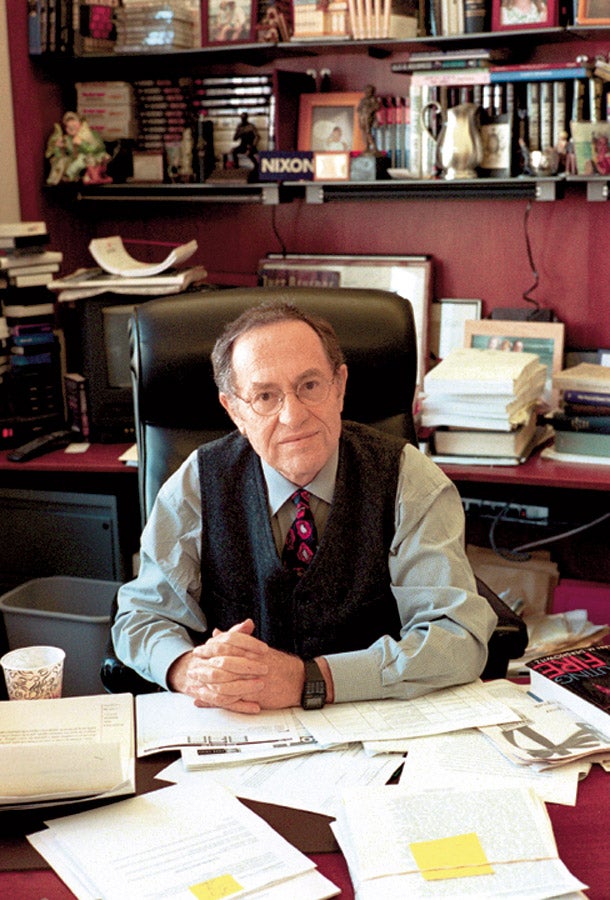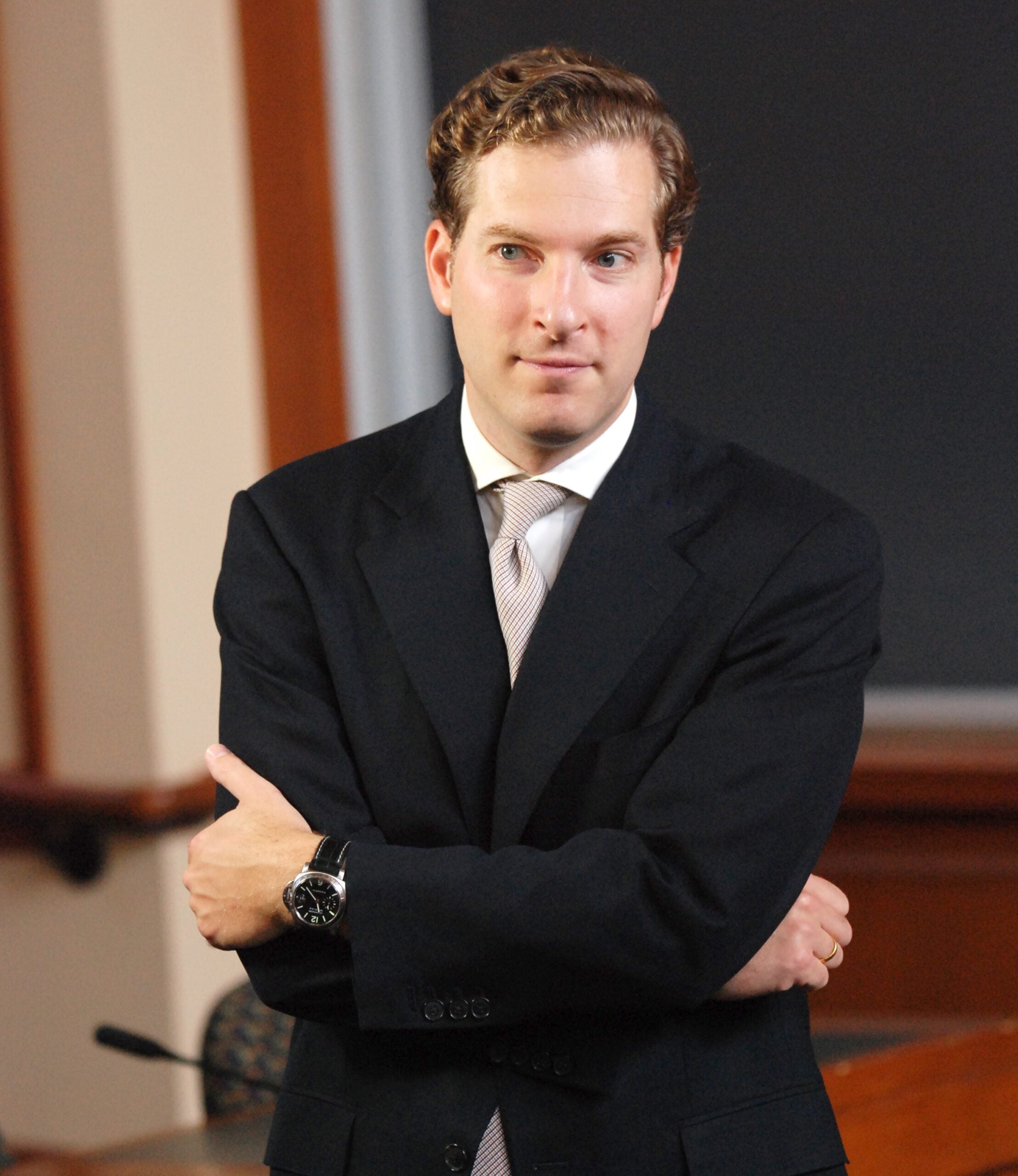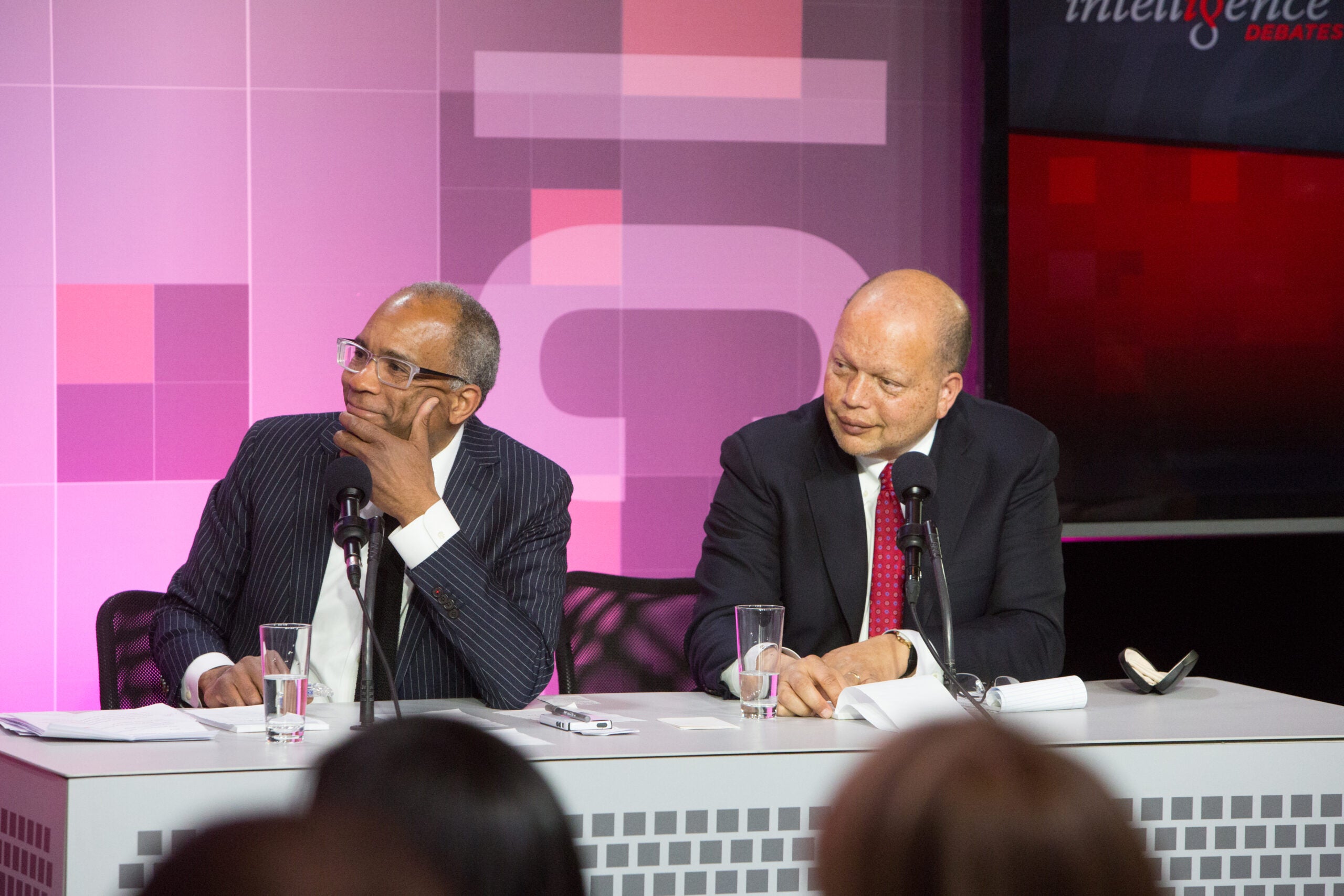Three Harvard Law professors and a Harvard Law alum recently participated in Intelligence Squared debates, a public policy debate series airing on PBS.

On March 5, Harvard Law School Professors Alan Dershowitz and Noah Feldman participated in a debate on whether the President has authority to target and kill U.S. citizens abroad. Dershowitz, a prominent scholar on criminal law and civil liberties, and Michael Lewis ’98, a military veteran and professor at Ohio Northern University Pettit College of Law, argued for the motion. Feldman, who helped draft the Iraqi interim constitution with members of the Iraqi Governing Council and served as senior constitutional adviser to the U.S.-led Coalition Provisional Authority in Iraq, and Hina Shamsi, director of the ACLU National Security Project, argued against the motion.

A pre-debate poll survey showed that 29 percent of the audience said they believed that the president has the power to target and kill U.S. citizens abroad and 44 percent were against the motion, with 27 percent undecided. After the debate, 54 percent said they supported the statement, while 39 percent did not agree and 7 percent remained undecided.
In February, Harvard Law School Professor Randall Kennedy, author of “For Discrimination: Race, Affirmative Action, and the Law,” participated in a debate, “Resolved: Affirmative Action On Campus Does More Harm Than Good,” held at Harvard Law School in Ames Court Room. Kennedy and Theodore Shaw, a law professor at Columbia who served for 23 years as an attorney with the NAACP Legal Defense Fund, argued against the motion. For the motion were Gail Heriot, a professor at the University of San Diego School of Law, and Richard Sander, a UCLA law professor who published “After the JD,” a 2004 study of affirmative action in American law schools.
Click here for video of Affirmative Action on Campus Does More Harm Than Good.
A pre-debate poll survey showed that 22 percent of the audience said they believed that affirmative action does more harm than good and 48 percent were against the motion, with 30 percent undecided. After the debate, 36 percent said they supported the statement, while 55 percent did not agree and 9 percent remained undecided.
The Harvard Crimson and the Washington Post both covered the debate.
